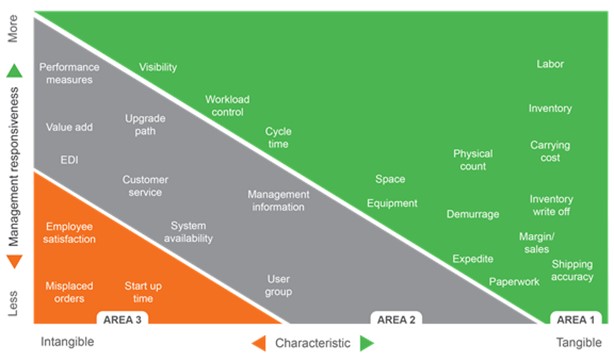Along with the tangible and intangible characteristics, a benefit should be measured on management’s general level of responsiveness to the benefit. The level of aggressiveness to use in pursuing the benefit will vary by company and/or project. It is critical to discern, in advance, management’s willingness to consider the presented benefits. For example, improved customer service is an intangible benefit and should be presented less aggressively, in general. If, however, poor customer service has been a recent corporate issue, a well-stated narrative benefit, regarding improved customer service, may be the key to management buy in.
Other qualitative statements might include:
- Scheduling credibility in the marketplace positions the company as supplier of choice.
- Improved customer service levels will increase sales and margins, and reduce returns.
- Better order status information increases responsiveness and customer confidence.
- Better management of the overall billing cycle to customers will have a positive impact on cash flow resulting in lower company interest costs. Timely and accurate customer invoicing brings cash in quicker.
The various savings categories discussed in this paper are charted below. Items in Area I are easily quantified and/or are at the top of management’s wish list and, at a minimum, should be included in the business case. Items in Area II may be quantifiable, depending on the operations, and will be included in the business case if enough buy in for each category can be obtained. Items in Area III are difficult to quantify and will be included in the business case in narrative format, if at all. Plotting the specific benefits resulting from your project will serve as a reference point for presenting each benefit category in the business case.
